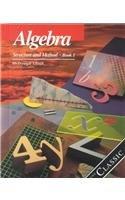Question
I am struggling with the long question about constrained multivariable functions (Lagrange multipliers), since there's no output value of the constrained equation st (the total
I am struggling with the long question about constrained multivariable functions (Lagrange multipliers), since there's no output value of the constrained equation st (the total cost), how could I solve these questions.
Here's the question:
A firm has monthly production function Q(K, L) given by Q(K,L)=K^1/3 x L^1/3
where K is the amount of capital and L t he amount of labour. Each unit of capital costs c dollars and each unit of labour costs w dollars.
(a) Use the method of Lagrange multipliers to find the optimal amounts of K and L that will minimize the cost of producing q units in a month. Find also the minimum cost.
(b) Now suppose that to produce each unit of good, it costs the firm r dollars for raw materials. Suppose the good sells for a fixed price of p dollars per unit, where p > r. If the only production costs are capital, labour and raw materials, and if the firm minimizes its monthly expenditure on capital and labour, find the firm's monthly profit (q).
(c) Search and classify all the critical points of profit(q) by the second derivative test.
(d)Show that the firm's maximum monthly profit is (p - r )^3/27cw
Step by Step Solution
There are 3 Steps involved in it
Step: 1

Get Instant Access to Expert-Tailored Solutions
See step-by-step solutions with expert insights and AI powered tools for academic success
Step: 2

Step: 3

Ace Your Homework with AI
Get the answers you need in no time with our AI-driven, step-by-step assistance
Get Started


